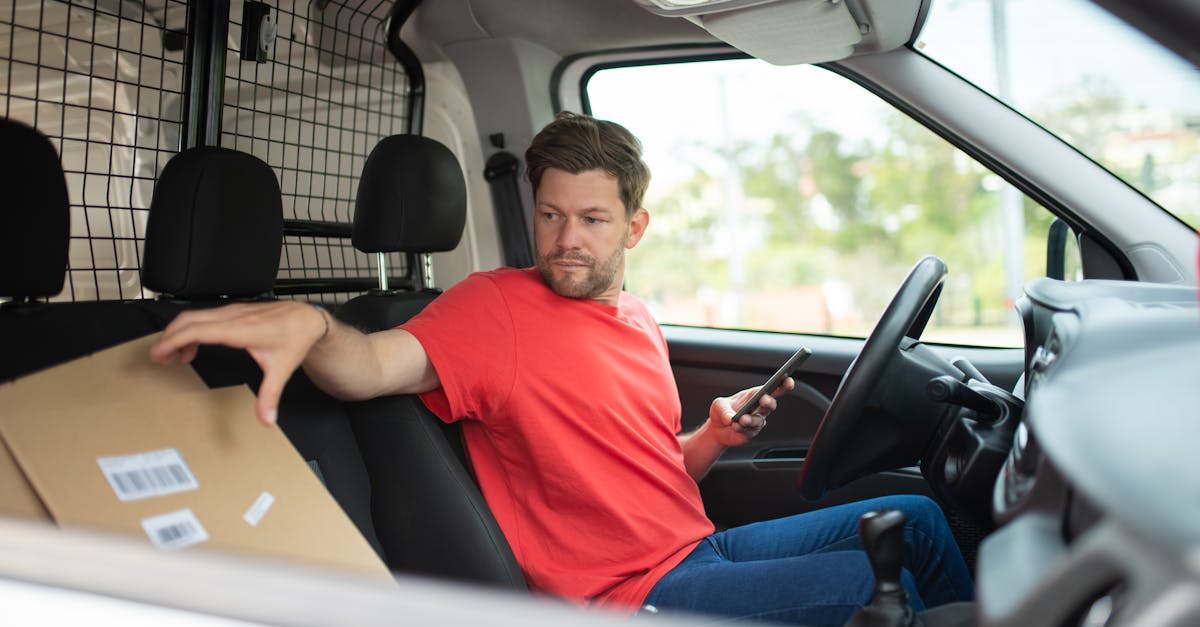
ting intricate deliveries requires a high level of coordination and planning. Furniture items often come in various shapes and sizes, necessitating careful consideration of access points, weight restrictions, and potential obstacles along the delivery route. Delivery teams must be well-trained to handle delicate items, ensuring that each piece is transported safely while also adhering to client timelines. The need for real-time communication between logistics providers and customers becomes crucial to address any unforeseen challenges that may arise.Why White Glove Logistics is Essential for High-Value Furniture
Logistics providers are often faced with the complexities of urban settings where narrow streets and limited parking can hinder timely service. Efficiently managing these obstacles demands innovative solutions, such as route optimisation and the use of specialized equipment. Additionally, the expectations for a seamless customer experience add another layer of responsibility. Ensuring that each delivery not only meets but exceeds customer satisfaction can significantly impact the reputation and success of logistics companies in an increasingly competitive market.
The Future of White Glove Logistics
As consumer expectations continue to evolve, the white glove logistics sector is expected to adapt significantly. Enhanced technology integration will likely play a pivotal role in this transformation. Companies are increasingly investing in advanced tracking systems, enabling real-time updates and transparency throughout the delivery process. The incorporation of artificial intelligence and machine learning could optimise route planning and execution, thereby improving efficiency in last-mile delivery and reducing operational costs.
Sustainability will remain a critical focal point for development. The logistics industry faces growing pressure to adopt eco-friendly practices, and white glove services are no exception. This could involve utilising electric vehicles or implementing greener packaging solutions. Those businesses that prioritise environmental responsibility may capture a larger market share, appealing to an increasingly eco-conscious consumer base. Adapting to these trends will be essential for long-term success and relevance in the evolving landscape of furniture delivery.
Predictions for Industry Growth
The white glove logistics sector is poised for significant growth in the coming years. As consumer expectations continue to rise, companies are increasingly focusing on delivering exceptional service throughout the entire purchasing journey. This trend is driven by the rise of e-commerce and the demand for timely, efficient deliveries that not only align with customer preferences but also enhance their overall experience. Providers who invest in technology and workforce training will likely see a competitive edge as they adapt to this changing landscape.
Sustainability will also play a pivotal role in shaping the future of logistics. More businesses are recognising the importance of eco-friendly practices and are likely to integrate these principles into their operations. This could lead to innovations in packaging and transport methods aimed at reducing the environmental footprint. As a result, companies that prioritise sustainable delivery options may attract a more conscientious consumer base, further amplifying the growth potential in this evolving market.
FAQS
What is white glove logistics in furniture delivery?
White glove logistics refers to a premium delivery service that involves careful handling, assembly, and placement of furniture in the customer's desired location, often requiring specialised equipment and trained personnel.Enhancing Customer Satisfaction
How is sustainability incorporated into white glove logistics?White glove logistics offers an elevated level of care that directly contributes to customer satisfaction. This service guarantees not only the safe transportation of high-value furniture but also a meticulous approach to handling each piece. Customers appreciate the commitment to detail, from the initial packing to the final placement in their homes. Such attention reassures buyers that their significant investments are in capable hands, reinforcing a positive experience throughout the entire process.
Sustainability in white glove logistics is achieved through environmentally friendly practices, such as using eco-friendly packaging materials, optimising delivery routes to reduce carbon emissions, and ensuring responsible disposal of old furniture.Furthermore, the end-to-end service provided by white glove logistics helps build strong relationships with clients. Before delivery, customers are kept informed at every step, fostering a sense of transparency and reliability. Upon arrival, the professional assemblers demonstrate expertise, ensuring that furniture is not just delivered but positioned according to the buyer's specifications. This level of service makes for a seamless transition, creating a lasting impression that encourages repeat business and positive word-of-mouth.